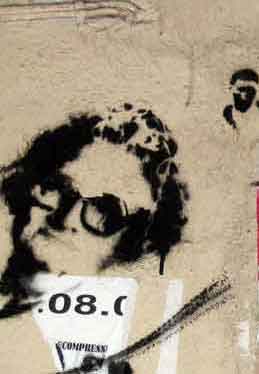State of the Arts, No Magic Bullets, Journal of Aesthetics and Protest
To come at last to Venezuela : Here, seven years into the Bolivarian process, people have been making art vigorously-drawing, painting, choreographing, dancing, composing, singing. A great deal of very interesting art and crafts is being made. Tambour making and playing, for example, is very advanced and diversified, while in the popular neighborhoods-where the new law of consejos comunales allows the organized community to control the local application of public funding-there is much interest in creating houses of culture where, for example, children will receive video production training or learn to play the cuatro (a Venezuelan stringed instrument, not unlike a guitar), films will be screened and discussed, and people can gather, organize, and socialize. Also some very important work of the imagination is taking place-right alongside the work of organizing-in the rich array of community and alternative media and in the radically experimental public television station that is Vive.
Not surprisingly, music is a fellow traveler in the Bolivarian revolution, as it has been in every revolution in history. Music builds solidarity and its lyrics can become ideological points of reference. The latter is the role of the music of the great Venezuelan composer and singer Alí Primera today. Before, in the Fourth Republic (1958-1998), his voice kept alive the idea of revolutionary struggle. It was a voice difficult to censor, as music always is (though in fact in 1985 Primera was likely assassinated for his music, as were Victor Jara and so many of the Nueva Canción generation). Today in revolutionary Venezuela Primera’s music helps to provide a set of common ideological “sites,” a grammar of agreed points of reference in marches and mobilizations as much as in discourses.
To some it might appear to be a liability that a great many of the museums in Caracas have gone on in form and content much as they did before, seeming to not keep pace with the Bolivarian revolution’s tremendous and far-reaching advances. Perhaps their spaces should be turned into cineclubs or given over to the rich crafts traditions of Venezuela or made into community centers. On the other hand, people clearly enjoy the access they now have to the spaces and products of “high culture”-spaces from which working class people were often excluded previously if for no other reason than the economic (having to pay admission). Surely that desire should be honored as long as it continues to exist. However, and this is really the point, the reworking or replacing or elimination of these “major” institutions-for “major” you can substitute the term “magic bullet”-is not a key task of the revolution. That will come in due time : as the revolution goes forward on the economic, educational, military, and political fronts that are actually at its center.

